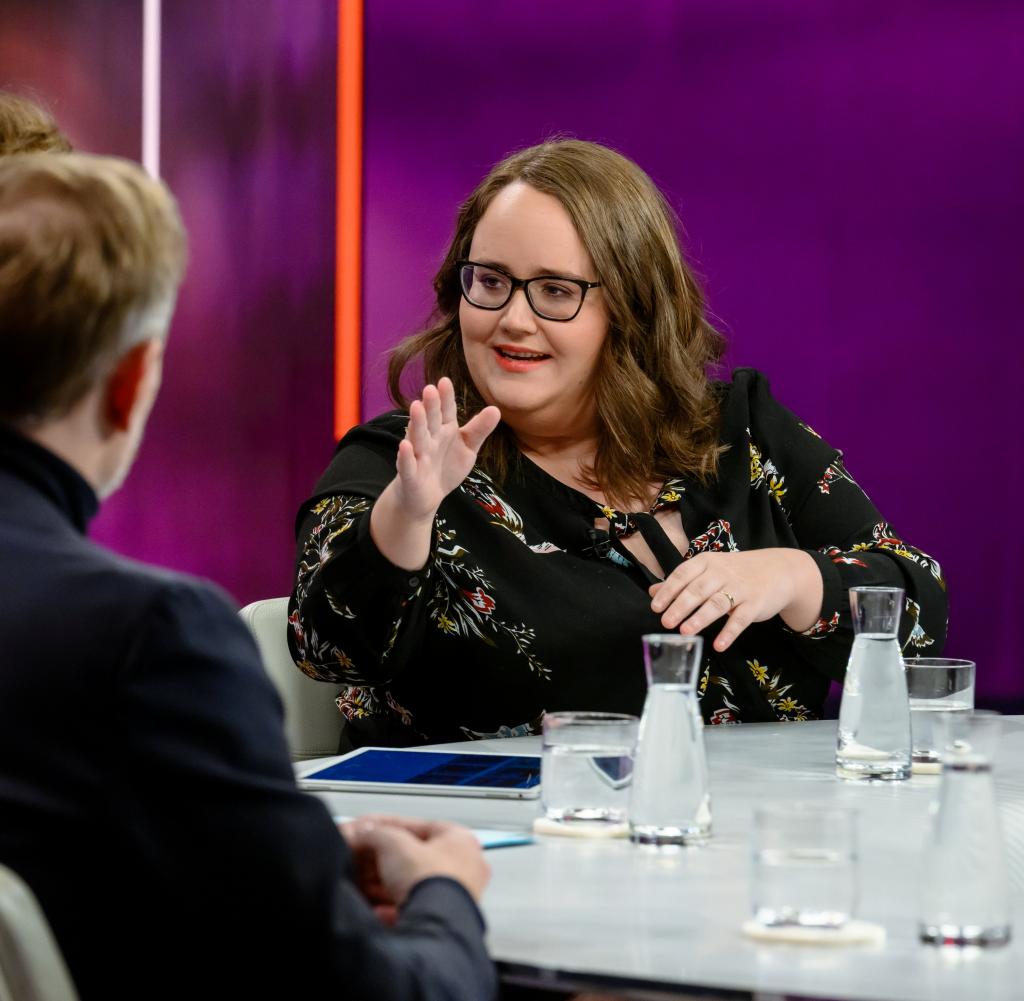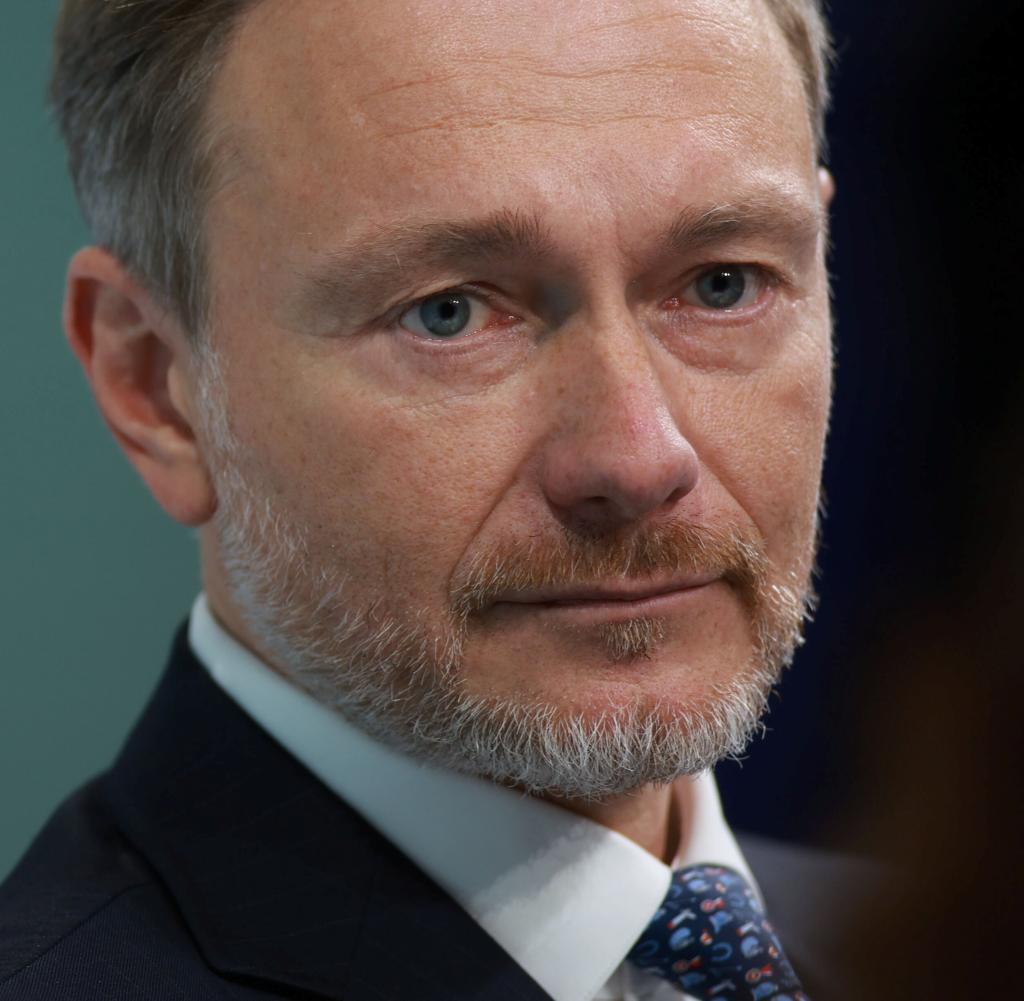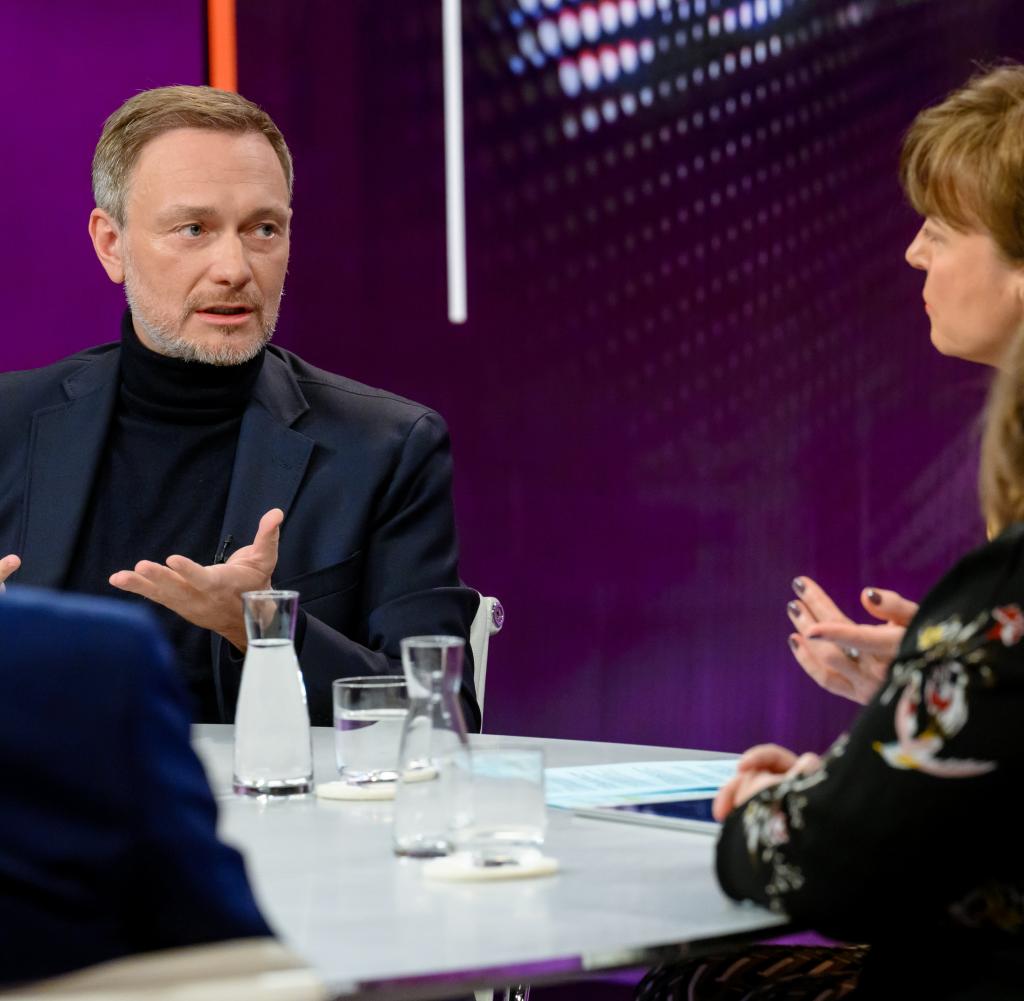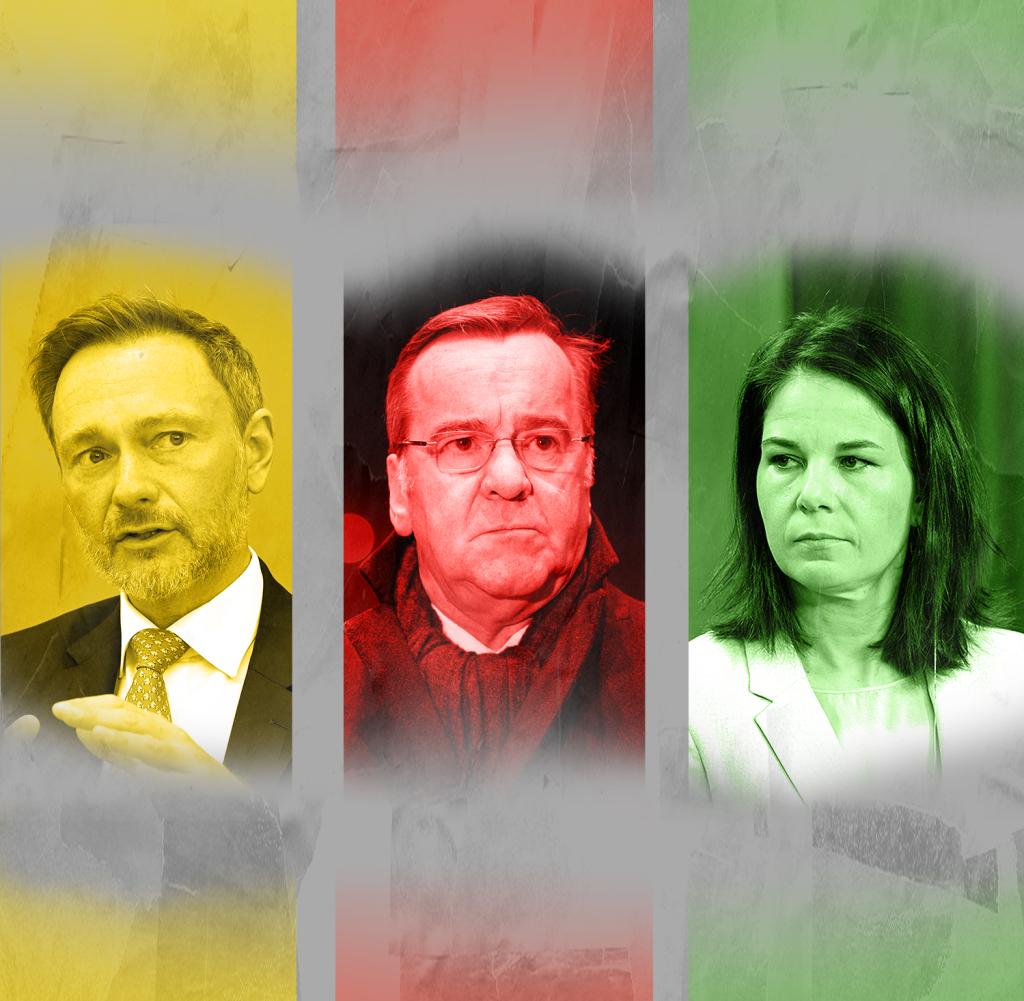“We are experiencing the end of the end of history,” warns Ricarda Lang


Green Party leader Ricarda Lang visits “Maybrit Illner”
Source: ZDF/Svea Pietschmann
Germany needs growth, but how? In “Maybrit Illner” the different schools of thought of Finance Minister Lindner and Green Party leader Lang come to light. A top economist made it clear to Lang: “It’s a land of milk and honey, it doesn’t work.”
“We are far from out of the woods, we are still in heavy water,” admitted Robert Habeck at yesterday’s presentation of the annual economic report. The growth forecast for the current year has shrunk to the “pathetic figure” of 0.2%. The Federal Minister of Economics addressed the Union to the demand to “finally give the green light” to the Growth Opportunities Act. At the same time, he relativized its effect to a “baby elephant”. “Economy on the brink of a crash – traffic lights without a course?” Maybrit Illner asked the federal chairmen of the FDP and the Greens, Christian Lindner and Ricarda Lang, as well as the economist and political advisor Clemens Fuest and Bertram Kawlath from the Association of German Mechanical and Plant Engineering (VDMA).
“We have to get the economy going,” Kawlath insisted. As vice president of the association, he represents 3,600 companies with a total of 1.3 million employees. “We are the ones who want to make the cake bigger. It just sometimes feels as if we are walking in a quagmire.” Support mostly gets stuck in the “regulatory quagmire,” he criticized. And the Growth Opportunities Act may also be “well intentioned”, but the originally planned relief volume of 7 billion euros has already shrunk to 3.5 billion euros.
Christian Lindner agreed with the entrepreneur and thus also with the Vice Chancellor. The proposed law has “become quite small”, but still needs to come “quickly”. He sees it “as a trailer, as an overture” for further measures. The Finance Minister explained that this also included investments in “pilot projects” such as green steel, but his main focus was on the German economy as a whole. He wants “the same amount of bureaucracy”, an “equally good job market” and “the same amount of tax burden” for everyone. Politics that decide on the economic structure contradict his “basic understanding”.
“We come from different schools of thought,” said Ricarda Lang, explaining the differences between her and Lindner’s economic policy worldview. While the FDP politician stands for general relief, she calls for “targeted investments”. It is about “supporting the economy in modernizing” and achieving “technological leadership in geopolitical competition”. “We are actually experiencing the end of the end of history,” warned the Green politician, adapting a popular saying from Francis Fukuyama, about new systemic competition that would force investments.
Finance Minister Christian Lindner (FDP)
Source: ZDF/Svea Pietschmann
Defense issues in particular play an important role in the face of Russian aggression. “Economic strength is a factor in geopolitics,” emphasized Christian Lindner. This would also have enabled the liberal democracies to prevail against the Soviet Union. “We stand in solidarity with Ukraine,” affirmed the FDP chairman. And since “we ourselves could be threatened in a dramatic way sooner or later,” Germany must do “a lot more” to defend itself. Instead of taking on debt for this, however, it must “work within the framework of regular state finances”.
Lang supported the call for increased defense spending, but referred to “other financing options” such as increased special funds or reforming the debt brake. “We must not pit external security against social security within the country. “Then we will lose support,” said the Green Party leader, “and that will not be possible from the current budget.” In her view, the question of investments in defense will concern Germany “not for two years, but for 20 years.”
In contrast to Lang, Clemens Fuest emphasized savings as a necessity. “Guns and butter? It would be nice if that were possible, but this is a land of milk and honey. “That’s not possible,” said the economist, “We will have losses.” In view of a changing world, politicians must tell the population more openly that there are still enough resources for the “basics” instead of always promising them protection and thus treating them like children. Above all, Fuest considered the basic principles to be a limited welfare state. “We will continue to finance it, but it will just be smaller.”





